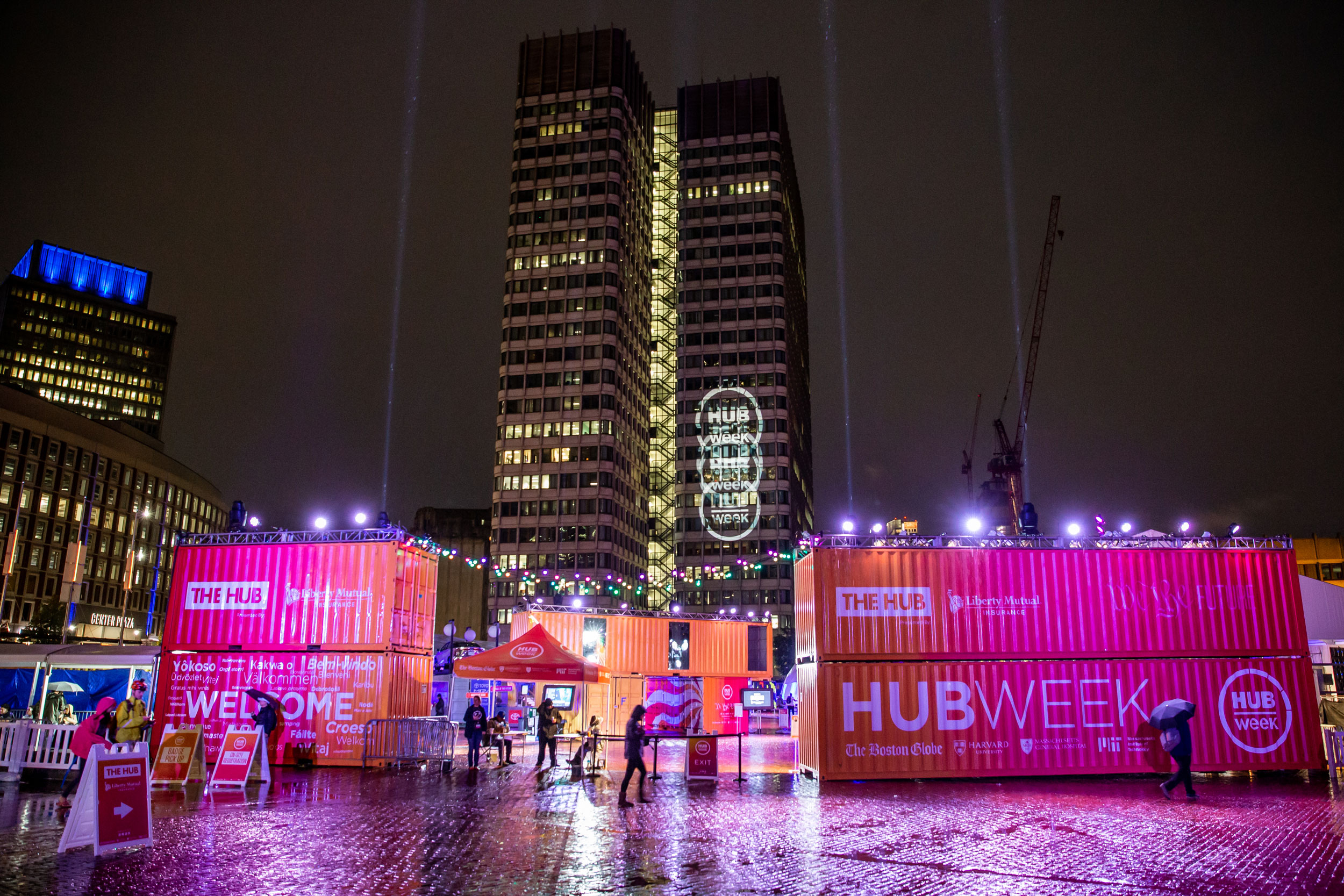The HUBweekly is HUBweek's weekly newsletter, featuring a snapshot of the big ideas and innovations in art, science, and tech coming out of the Greater Boston area. You can find this week's full edition here. Want these insights, plus events, interviews, and more, delivered to your inbox? Subscribe to the HUBweekly here.
1. ARTS FOR ALL
This December, the Museum of Fine Arts will acquire 12 artworks from the Souls Grown Deep Foundation, a nonprofit dedicated to promoting and preserving the contributions of artists from the African American South, as part of a transfer of 51 works by 30 self-taught black artists to major museums around the country. Other exciting new artworks and exhibits have been cropping up all across the Boston area recently — we’d recommend swinging through “William Forsythe: Choreographic Objects” at the ICA, an exhibition that blurs the lines between performance, sculpture, and installation, and stopping by Stephanie Cardon’s striking installation UNLESS in the Prudential Center. Public art organization Now + There also just recently released its 2019 Public Art Accelerator cohort (which includes HUBweek artist Pat Falco and speaker Dell Hamilton!), giving us lots more to look forward to in the coming year.
2. CL[AI]M TO FAME
Although many of us can only ever dream about what it'd feel like to be a celebrity, researchers at Northeastern are helping us get a better picture of what our famous selves might look like. The algorithm behind AI Portraits has been taught what faces look like based exclusively on photos of famous people, not only creating fun doppelgängers but also showing us exactly how the data an AI is fed correlates to the results it produces (read: beware of bias). Over at MIT, an artificially intelligent robotic system is ready to revolutionize materials science; it’s quickly developing and testing new chemical compounds — all by itself. But before AI can reach its full potential, we need a workforce that’s trained to use and interact with it. To help close the AI skills gap, local artificial intelligence software company Neurala is offering its Brain Builder platform to organizations and academic institutions in the U.S. and China, in the hopes that it will streamline the "creation, deployment, analysis and management of deep learning applications."
3. “LIKE BUILDING A PLANE WHILE FLYING IT”
Founding and running a startup is challenging in any industry — especially robotics. Between securing funding, getting your product to market, and dealing with large competitors, it can be “like building a plane while flying it.” Despite these difficulties, Ori, the MIT-born robotic furniture company, is expanding its portfolio and beginning to sell its products directly to consumers. You can now maximize your apartment space with a mail-order walk-in closet (that also fits a 50-inch TV and hides a fold-out desk) or a bed that drops from the ceiling. Also on the robotics front, the 5G Robotics Challenge was recently launched in Boston; teams were tasked with developing hardware or software solutions that will help robots take advantage of super-speedy 5G networks that carriers say will revolutionize the pace at which robots and web systems can learn and communicate with one another.
4. ON THE BRAIN
Researchers at MIT have identified a pattern of brain activity linked to the development of schizophrenia, a finding that could be used to diagnose the condition earlier and more easily. Scientists have also discovered a neurological circuit that helps humans and animals respond to threats; but when it’s out of whack, it could lead to anxiety, paranoia, and other symptoms associated with schizophrenia and depression. At Harvard, two professors are using new imaging techniques to give us new insight into the brain’s structure: Their “cellular atlas” allows us to “understand several behaviors in ways that we never did before.” Want to protect your brain from disease? Researchers say you can do it over breakfast: A compound found in dark roast coffee may lower your risk of developing Alzheimer’s and Parkinson’s Disease ☕🧠💪.
5. TOO MANY 'BOTS IN THE KITCHEN
Thanksgiving is right around the corner, and for some, the stress of preparing a massive meal for family and friends may already be building. Fear not, the Butterball Turkey Talk-Line is back, and has gotten a 21st century upgrade — its services now reside in the cloud, and you can get help during a turkey-mergency via your smart home device. A local Boston chef has also shared his tips for the perfect turkey. Need a extra pair of hands to help during the big day? Dexai Robotics suggests Alfred, its collaborative robot (or “cobot”) sous chef that the company hopes will make restaurants more efficient and free humans from rote mechanical tasks. Speaking of robots in the kitchen, a big congratulations to the co-founders of Spyce, a new Boston restaurant that uses robots to cook your meals, for being named to Forbes 30 Under 30 for 2019. We caught up with Kale Rogers, Spyce’s COO, a few weeks ago to chat about the company and its future.
